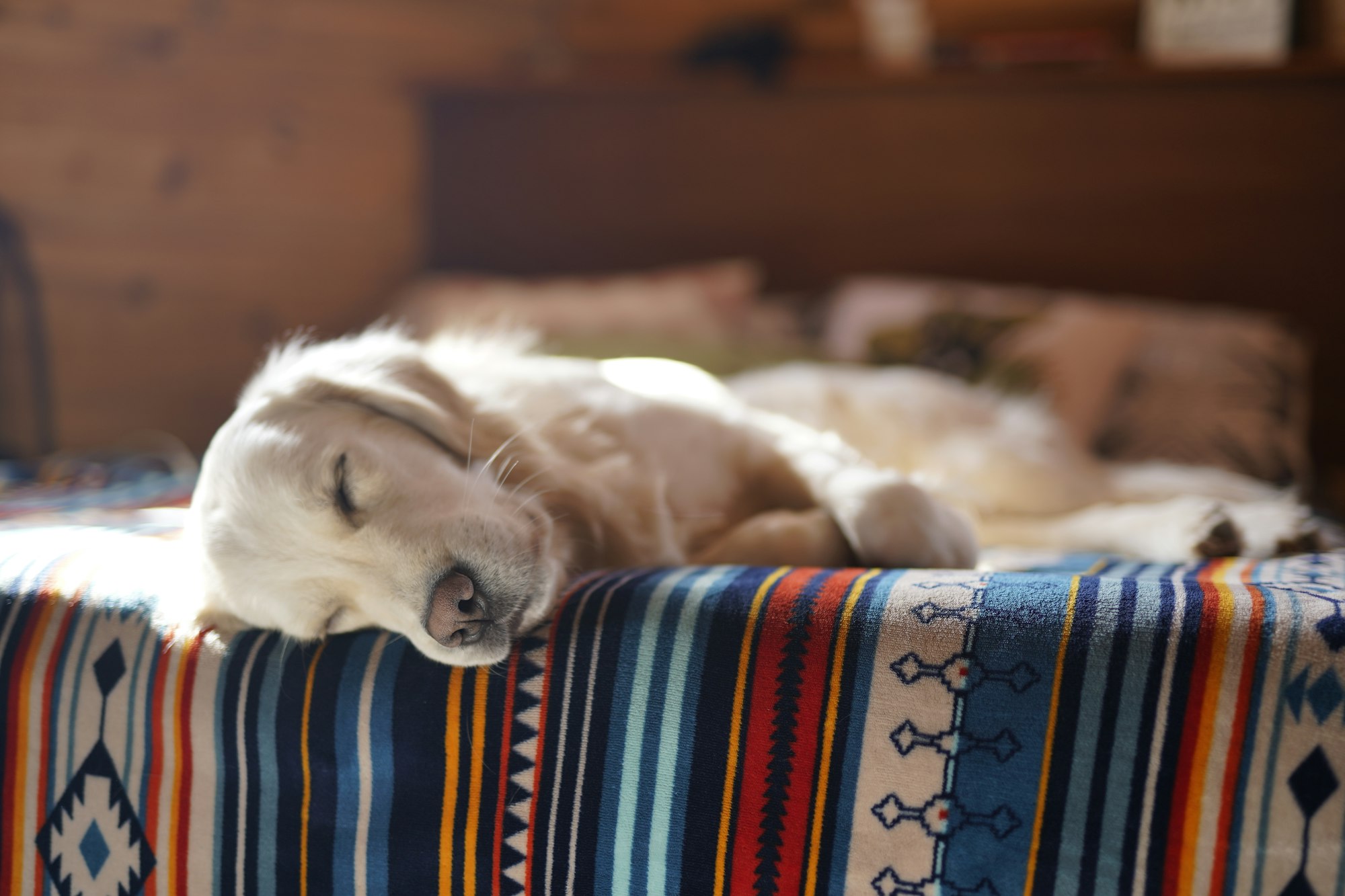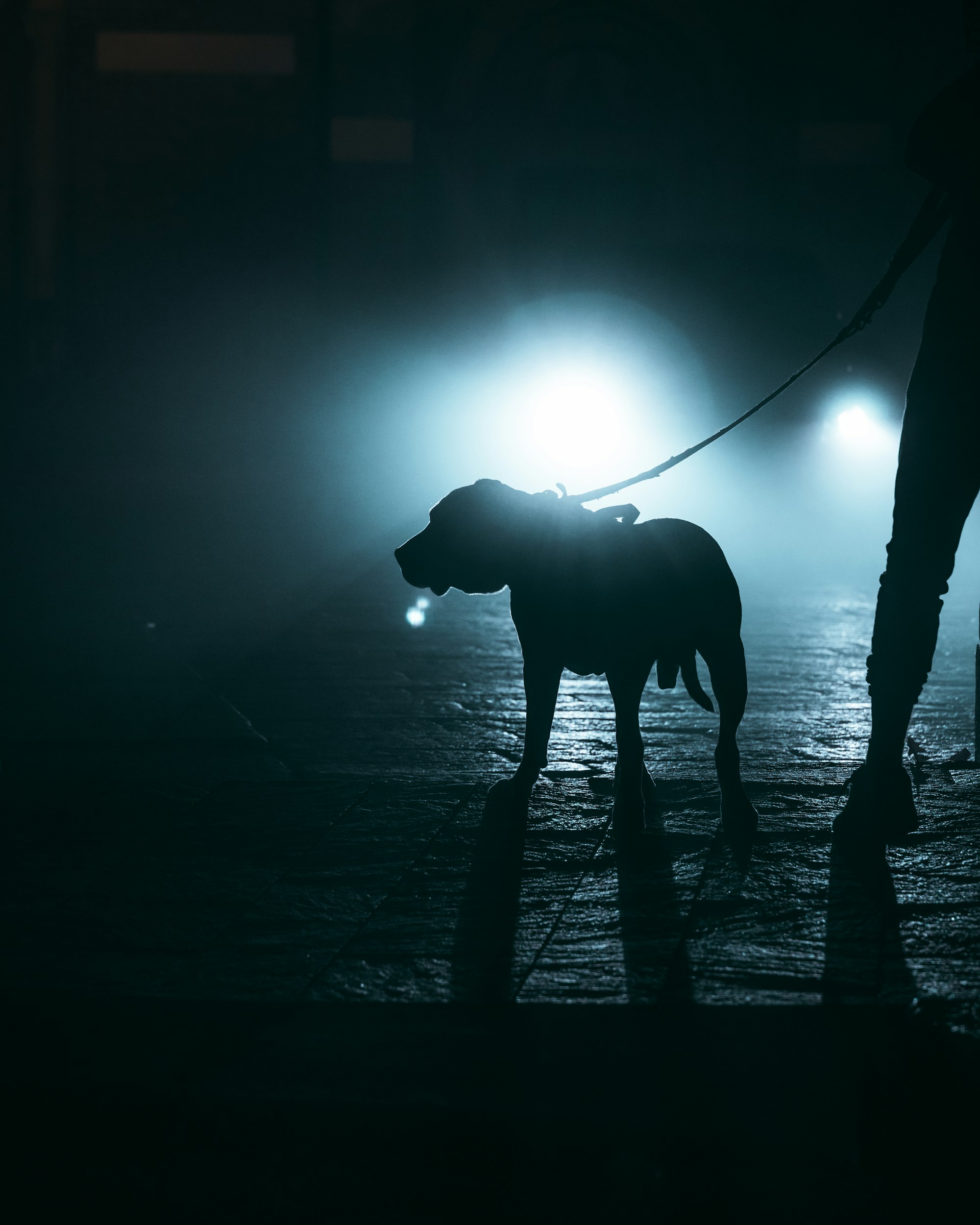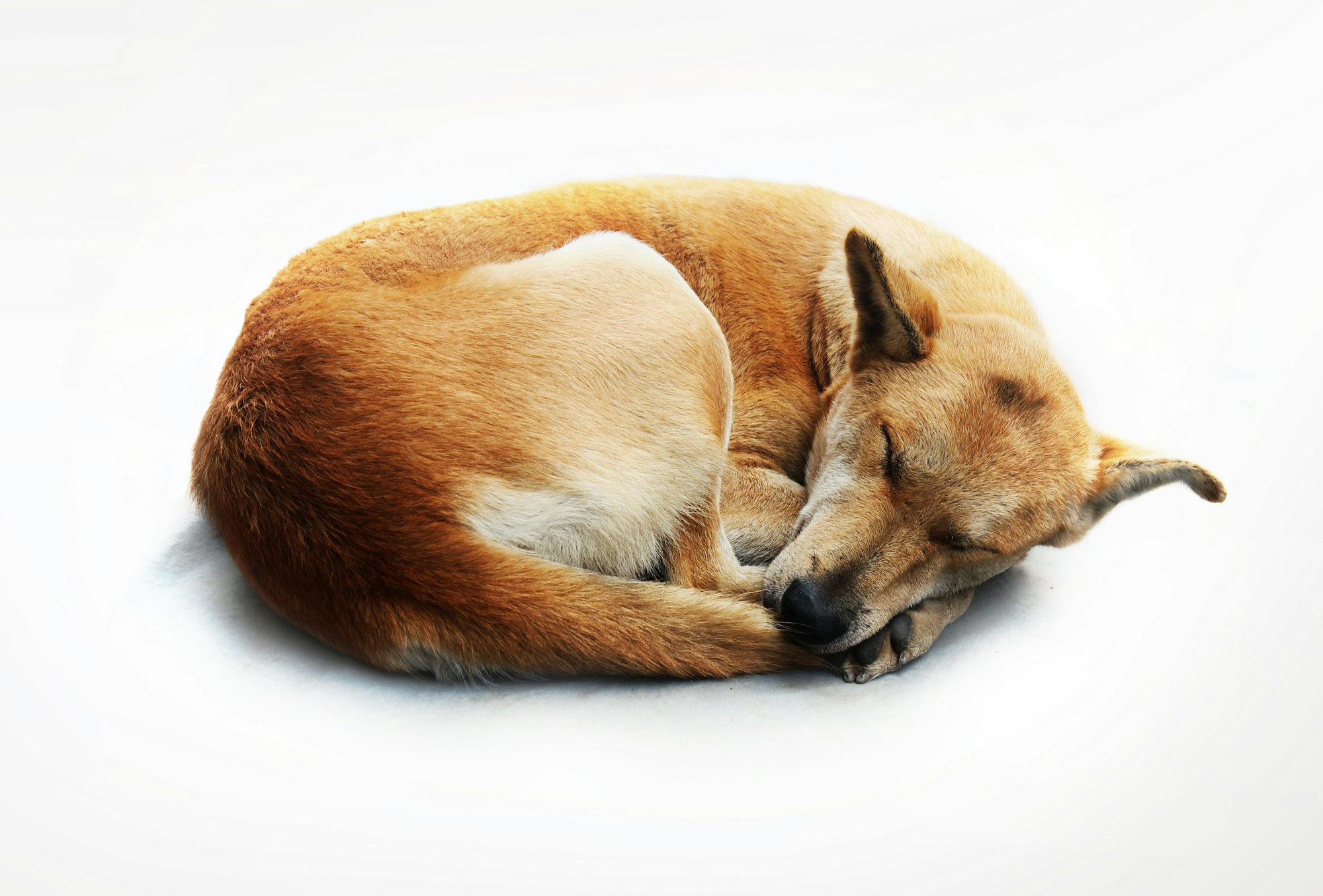Dogs, our beloved companions, often leave us wondering about their sleep habits. Are dogs nocturnal creatures, or is their behavior influenced by various factors? Let's delve into the intriguing world of canine sleep patterns to uncover the truth.
Understanding our furry friends' sleep-wake cycles is crucial for ensuring their well-being. Nocturnal behavior, commonly associated with animals active during the night, prompts us to question whether our canine companions fall into this category.

Natural Sleeping Patterns of Dogs
Dogs, as descendants of wolves, possess innate sleeping patterns deeply rooted in their biology. Understanding these natural rhythms is fundamental to ensuring the overall well-being of our canine companions.
The Canine Circadian Rhythm
Much like humans, dogs have a circadian rhythm that regulates their sleep-wake cycles. This biological clock influences when a dog is naturally inclined to be active or rest. Puppies, in particular, tend to require more sleep, often up to 18 hours a day, as their bodies undergo rapid growth and development.
Age-Related Variations
The natural sleeping patterns of dogs evolve as they age. Puppies, being bundles of boundless energy during waking hours, may experience more frequent and irregular naps. As dogs mature, their need for extended periods of rest diminishes, leading to a more structured sleep routine.
Adaptation to Domestic Life
The domestication of dogs has further influenced their sleeping patterns. Canines have adapted to the lifestyles of their human companions, adjusting their sleep schedules to align with household activities. This adaptation has resulted in dogs being more diurnal, or active during the day, than their wild counterparts.
Factors Influencing Sleep
Various factors influence the natural sleeping patterns of dogs. Environmental cues, such as light and temperature, play a significant role. Dogs are sensitive to changes in their surroundings, and a comfortable sleep environment is essential for ensuring they get the quality rest they need.
Ensuring Restful Sleep
Understanding a dog's natural sleep tendencies allows for the creation of an environment conducive to restful sleep. Providing a comfortable bed, minimizing disturbances during the night, and establishing a consistent routine contribute to fostering healthy sleeping habits in dogs.
In conclusion, comprehending the natural sleeping patterns of dogs is essential for responsible pet ownership. Recognizing their circadian rhythm, age-related variations, and the influence of domestication enables us to meet our canine companions' needs and ensure they lead healthy, balanced lives.
Nocturnal Characteristics in Dogs
Dogs, with their keen senses and ancestry rooted in the wild, exhibit fascinating nocturnal characteristics. While not strictly nocturnal, these traits play a crucial role in their behavior and survival instincts.
Enhanced Senses During the Night
Dogs have a remarkable ability to navigate in low-light conditions, thanks to their heightened senses. Their acute sense of smell and exceptional hearing allows them to detect subtle changes in their environment during the night. This heightened awareness is a survival instinct inherited from their wolf ancestors.
Variations Among Dog Breeds
The extent of nocturnal characteristics can vary among different dog breeds. Some breeds may retain more of their ancestral nocturnal traits, while others may adapt more to diurnal patterns. Understanding these variations is essential for tailoring our approach to each dog's unique needs.
Nighttime Activity and Social Behavior
Dogs often engage in social behaviors during the night, especially if they share their living space with other dogs. Nighttime can be an opportunity for social bonding, play, and communication. Recognizing and facilitating these interactions contribute to a dog's overall mental and emotional well-being.
Addressing Nocturnal Behaviors
Owners may observe certain nocturnal behaviors, such as barking or restlessness, in their dogs. Addressing these behaviors involves understanding their underlying causes, which can range from anxiety to the need for physical or mental stimulation. Tailored training and a structured routine can help modify these behaviors positively.
Striking a Balance
While acknowledging and appreciating the nocturnal characteristics of dogs, it's crucial to strike a balance that aligns with their domesticated lifestyle. Providing outlets for natural behaviors while ensuring a structured routine contributes to harmonious coexistence between dogs and their human companions.
Factors Affecting Dogs' Activity at Night
Understanding the factors that influence dogs' activity during the night is crucial for promoting a balanced and restful sleep routine. Several elements contribute to their nighttime behavior.
Age and Energy Levels
One primary factor affecting dogs' activity at night is their age. Puppies, with their boundless energy, may naturally be more active during the night. As dogs age, their energy levels tend to decrease, leading to a more subdued nighttime routine.
Environmental Stimuli
Environmental factors play a significant role in dogs' nighttime activities. The presence of other animals, unfamiliar sounds, or changes in the surroundings can stimulate dogs and influence their behavior. Creating a calm and secure nighttime environment can help mitigate disturbances.
Health Considerations
A dog's health can impact its activity levels, including those during the night. Pain or discomfort due to underlying health issues may cause restlessness. Regular veterinary check-ups are essential for identifying and addressing any health concerns that may affect a dog's sleep.
Lack of Daytime Stimulation
Insufficient physical and mental stimulation during the day can lead to increased nighttime activity. Dogs need opportunities for exercise, play, and mental engagement. Ensuring they receive adequate stimulation during daylight hours contributes to a more restful night.
Diet and Feeding Schedule
The timing and content of a dog's last meal can affect its nighttime routine. Feeding too close to bedtime or providing highly stimulating treats may contribute to increased activity. Establishing a consistent feeding schedule and offering a balanced diet can help regulate nighttime behaviors.
In conclusion, recognizing and addressing these factors contribute to a more balanced and harmonious sleep-wake cycle for dogs. By understanding the specific needs of individual dogs, owners can create an environment conducive to restful nights.
Canine Senses at Night
Dogs possess remarkable senses that are particularly heightened during the night. Understanding how these senses function sheds light on their nocturnal behaviors and provides insights into their unique abilities.

Enhanced Olfactory Abilities
A dog's sense of smell is extraordinary, and it becomes even more acute in low-light conditions. This heightened olfactory ability allows dogs to detect scents, identify changes in their environment, and even locate specific objects during the night.
Exceptional Hearing
Dogs have highly sensitive ears capable of picking up sounds that may go unnoticed by humans. This acute sense of hearing enables them to detect subtle noises, ensuring they remain aware of their surroundings and potential threats during the night.
Low-Light Vision
While not entirely nocturnal, dogs have adaptations in their eyes that enhance their vision in low-light conditions. The tapetum lucidum, a reflective layer behind the retina, improves their ability to see in the dark. This adaptation is inherited from their ancestors, who were crepuscular hunters.
Understanding these heightened senses is crucial for appreciating a dog's behavior during the night. It also emphasizes the importance of creating an environment that accommodates and respects their sensory capabilities.
Human Influence on Dogs' Sleeping Patterns
The influence of human activities on dogs' sleeping patterns is a key aspect of responsible pet ownership. Dogs, being social animals, often adapt their schedules to align with their human companions. Understanding and managing this influence is essential for promoting healthy sleep habits.
Shared Activities and Bonding
Dogs thrive on companionship, and their sleeping patterns often mirror those of their human family members. Shared activities during the evening, such as walks or quiet time, contribute to a sense of bonding and may influence the dog's subsequent sleep behavior.
Creating a Consistent Routine
Establishing a consistent daily routine is beneficial for both dogs and their owners. Dogs feel more secure when they know what to expect, and a predictable routine helps regulate their sleep-wake cycle. Consistent meal times, walks, and bedtime rituals contribute to a stable environment.
Environmental Factors
The physical environment created by humans significantly impacts dogs' sleep. Factors such as lighting, noise levels, and the comfort of the sleeping area influence a dog's ability to rest peacefully. Providing a comfortable and quiet sleep space contributes to a positive sleep environment.
Training and Adaptation
While dogs may exhibit nocturnal tendencies, training plays a crucial role in modifying their behavior. Consistent routines and positive reinforcement can help dogs adapt to desired sleep-wake cycles.
Understanding a dog's individual needs and preferences is essential for successful training and adaptation.
Health Considerations
Health issues can also affect dogs' sleep patterns. Regular veterinary check-ups are crucial for identifying and addressing any underlying health concerns that may impact a dog's quality of sleep.
Being proactive in addressing health issues contributes to overall well-being and may positively influence sleep behavior.
Myths About Dogs' Nocturnal Behavior
Dispelling common myths surrounding dogs' nocturnal behavior is essential for fostering a more accurate understanding of their natural tendencies. Let's address and debunk some prevalent misconceptions.
Myth 1: All Dogs Are Strictly Nocturnal
Contrary to popular belief, not all dogs are strictly nocturnal. While they may exhibit some nocturnal characteristics, such as enhanced senses in low-light conditions, labeling them as exclusively active during the night oversimplifies their behavior. Many dogs are crepuscular, being more active during dawn and dusk, aligning with their ancestral hunting patterns.
Myth 2: Dogs Should Sleep Through the Night Without Interruption
Expecting dogs to sleep soundly without interruption throughout the night might be unrealistic. Factors such as age, health, and environmental stimuli can influence their nighttime behavior. Puppies, in particular, may need to relieve themselves or may be more prone to restlessness. Understanding and addressing these factors contribute to a more realistic expectation of dogs' sleep patterns.
Myth 3: Nocturnal Behavior Indicates Behavioral Issues
Some owners may associate nocturnal behaviors, such as nighttime barking or restlessness, with behavioral problems. While these behaviors can be disruptive, they often have underlying causes, such as separation anxiety, boredom, or a lack of stimulation during the day. Addressing the root causes through training and environmental enrichment is more effective than viewing nocturnal behaviors as inherent behavioral issues.
Myth 4: Dogs Should Adapt Quickly to a Human Sleep Schedule
Assuming that dogs should easily adapt to a human sleep schedule might overlook their individual needs and natural tendencies. Dogs, being adaptable animals, can adjust to human routines, but this adaptation takes time and consistency. Owners should consider the unique characteristics of their dogs and gradually transition them to desired sleep-wake cycles.
Myth 5: Nocturnal Behavior Is a Sign of Aggression
Associating nighttime activity with aggression is a common misconception. Dogs may become more alert or protective during the night, reflecting their natural instincts. However, interpreting this behavior solely as aggression oversimplifies the complexity of their responses. Understanding the context and triggers for nocturnal behaviors allows owners to differentiate between protective instincts and aggressive behavior.
Balancing Dogs' Activity Levels
Maintaining a balanced routine that includes sufficient physical and mental stimulation during the day is key to minimizing nighttime restlessness. Adequate exercise and engaging activities contribute to a healthier sleep routine.
Creating a harmonious balance ensures dogs get the rest they need while fostering a strong bond between pets and their owners.
Understanding Barking and Other Nocturnal Behaviors
Nighttime barking can be a concern for pet owners. Exploring the reasons behind this behavior and addressing any underlying issues, such as anxiety or boredom, is essential.
By understanding and addressing nocturnal behaviors, owners can create a more peaceful and restful environment for both themselves and their furry companions.
Nighttime Activities for Dogs and Owners
Engaging in nighttime activities with your dog can be a rewarding experience. Whether it's a quiet stroll, interactive play, or simply spending quality time together, shared nocturnal experiences strengthen the bond between happy dogs and their owners.
Creating a Comfortable Sleep Environment
A cozy and safe sleep space is vital for ensuring dogs have a restful night. Choosing the right dog bed, providing soft bedding, and minimizing disturbances contribute to creating a comfortable sleep environment.
Understanding and catering to individual preferences enhances the overall sleeping experience for our canine friends.

Conclusion
In conclusion, the question "Are dogs nocturnal?" doesn't have a one-size-fits-all answer. While dogs may exhibit some nocturnal characteristics, factors such as breed, age, and environmental influences play significant roles in shaping their behavior.
Understanding and respecting our dogs' natural tendencies contribute to a harmonious relationship. By debunking myths, addressing health considerations, and creating a conducive sleep environment, we can ensure our furry friends enjoy restful nights and lead fulfilling lives.
Frequently Asked Questions (FAQs)
- Q: Can I train my dog to be more active during the day and sleep at night?
- A: Yes, with consistent training and a balanced routine, you can modify your dog's sleep-wake cycle.
- Q: Are there specific breeds that are more nocturnal than others?
- A: Yes, some breeds may exhibit more nocturnal characteristics, but individual variations exist.
- Q: Why does my dog bark at night?
- A: Nighttime barking can be due to various reasons, including anxiety, boredom, or the presence of external stimuli.
- Q: How can I create a comfortable sleep environment for my dog?
- A: Providing a cozy bed, soft bedding, and minimizing disturbances contribute to a comfortable sleep space.
- Q: Is it normal for puppies to be more active at night?
- A: Yes, puppies are generally more energetic and may exhibit increased nocturnal activity, but this tends to decrease with age.